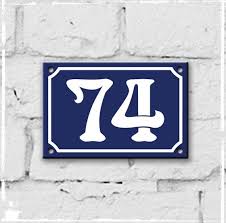In an effort to slow the double digit increase in taxes, there is a new…
Walmart helps small business owners; Sues Summit (Breck) and Eagle (Vail) counties

Walmart is suing Summit and Eagle Counties and 31 other county governments in Colorado in an effort to reduce its property tax bills across the state. This case is radically different than your run of the mill property tax dispute. Walmart Stores Inc., is suing half of Colorado’s 64 counties over what it deems to be an egregious overvaluation by county assessors. Why is this case so monumental? How could it drastically change taxes for property owners and small business owners?
Walmart, in its suit, is claiming that 31 county assessors are substantially overvaluing their personal property which includes checkout stands, coolers, racks, etc… Under Colorado law business owners pay taxes on both real property like real estate as well as business property. This impacts the vast majority of business owners as they pay both real estate taxes for their physical location as well as taxes on their equipment, fixtures, etc… How this case is decided could drastically alter the valuation methodology used by assessors throughout Colorado . Before getting into the details, it is important to highlight how personal property is now valued.
How is personal property valued now?
The primary method is for the tax assessor to take the original cost and apply a depreciation factor. There is a depreciation table that categorizes various business property (like a desk or computer) and depreciates the item over the useful life. For example, if you buy a desk, it would be depreciated over a 10-year period. The example given in the Colorado Assessors Manual (page 110 for some good reading😊) shows a desk purchased in 2013 for 1500, in the 2018 assessment the desk would be valued at 811.
If you look at the depreciation schedule there are a number of items that are a bit perplexing, for example a typewriter has a useful life of 6 years and a river raft of 10 years. First the actual value of a typewriter is close to zero as it is functionally obsolete. On the flip side the market value of a used commercial raft is substantially impacted based on its use. For example, a commercial raft could be used once a season on a placid lake versus one used three times a day on class 4 whitewater. This leads to the questions in the Walmart case. Is the typewriter worth anything? Is the desk really worth 811 dollars with all the used office furniture floating around? Does a raft really hold its value over a 10-year period as the depreciation schedule suggests?
What is the case about?
Walmart’s case goes to the heart of how business/personal property is valued. Currently assessors are focused on the “depreciable” life of an item as opposed to factoring in items that radically effect the useful life of the item. In Walmart’s case they argue that the useful life of the fixture (like a checkout stand) is greatly reduced as they operate 18-24 hours a day. Other retailers might operate only 8-10 hours a day. Wouldn’t an item like a checkout stand wear out faster the more hours it is operated? Furthermore, the resale value of fixtures once they need to be replaced is very small due to the glut of items from various retailers as many have failed or closed locations. Walmart’s claims seem reasonable, but local assessors have denied this request which is what has led to the lawsuits in 31 counties throughout Colorado.
How will this case change the precedent?
If Walmart is successful the case will radically alter the valuation of personal property. Assessors will have to take into account other variables like usage, resale value, etc.. that will have huge impacts on assessed value. With these variables factored in the assessed values on items will plummet. In Walmart’s case let’s assume the useful life of items is cut in half as they operate most of their stores close to 24 hours as opposed to a 8-12 hour day as assumed with the current depreciation schedule. For the one store in Frisco, Walmart paid 21,710 in property taxes. Let’s assume this store is average for the state. With 105 stores in Colorado, they paid almost 2.3m in personal property taxes. If this number is cut in half, the savings would be approximately 1.5 million each year.
Why is this case so important for real estate and small business owners?
If Walmart is successful this will allow other businesses to follow in their footsteps and successfully challenge their assessments. Other small businesses and real estate owners are in similar situations. Take for example a restaurant in Breckenridge, if Walmart is successful the restaurant owner could argue that their equipment’s useful life is drastically shorter than the current assessor schedule and the ultimate resale value of the equipment is also substantially less than the depreciated value. This ruling could open the floodgates for countless other business owners
Summary
When looking at the case, I think Walmart has a pretty good shot at radically altering how real property tax is assessed in the state. Many small and large business owners will likely benefit from the new precedent set in this case with drastically lower property bills. Although many small business owners are not large fans of Walmart, Walmart has the resources to win the property tax dispute which will give small business owners something to smile about.
Resources/Additional Reading
I need your help!
Don’t worry, I’m not asking you to wire money to your long-lost cousin that is going to give you a million dollars if you just send them your bank account! I do need your help though, please like and share our articles on linked in, twitter, facebook, and other social media. I would greatly appreciate it.
Written by Glen Weinberg, COO/ VP Fairview Commercial Lending. Glen has been published as an expert in hard money lending, real estate valuation, financing, and various other real estate topics in the Colorado Real Estate Journal, the CO Biz Magazine, The Denver Post, The Scotsman mortgage broker guide, Mortgage Professional America and various other national publications.
Fairview is the recognized leader in Colorado Hard Money and Colorado private lending focusing on residential investment properties and commercial properties both in Denver and throughout the state. We are the Colorado experts having closed thousands of loans throughout the state.
When you call you will speak directly to the decision makers and get an honest answer quickly. They are recognized in the industry as the leader in hard money lending with no upfront fees or any other games. Learn more about Hard Money Lending through our free Hard Money Guide. To get started on a loan all they need is their simple one page application (no upfront fees or other games)


